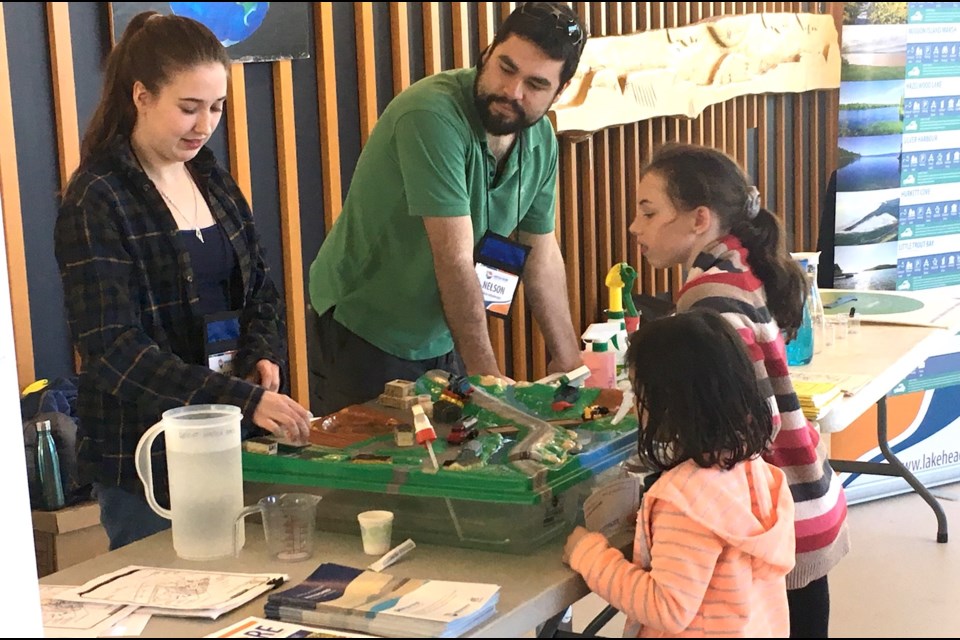THUNDER BAY - Earth is often thought of as the blue planet, with 71 per cent of the surface covered in water, but our supply of clean water is limited and that is a lesson environmental leaders want to instill within the younger generation.
“Most of the water is tied up in the oceans as salt water or frozen in the ice caps or locked too far in the ground,” said Gene Kent, environmental educator with the Lakehead Region Conservation Authority. “So if we don’t care for the water we have, we won’t have it in the future.”
As part of Canada Water Week, Let’s Talk Science and Confederation College hosted a special event on Sunday to educate youth and families on how to conserve and protect water.
Various community organizations, including EcoSuperior, the Lakehead Region Conservation Authority, and EarthCare Thunder Bay had interactive booths on display with information about protecting the watershed, identifying invasive species, and water conservation.
“Our goal here today is to teach kids and parents about ways we can protect our watershed,” Kent said. “We only have a certain amount of water in our world that we are able to use as humans.”
Tempest Revesz, a coordinator with Let’s Talk Science, said it’s key to reach out to the youth, even at a very young age, to provide them with the proper tools so they can continue to make changes to reduce waste and protect water.
“We really try to hammer home that these things are not changeable overnight, which is why kids are so important,” she said. “They have so much influence in their next steps. So hopefully we will see those changes progress in the coming years.”
“We have not failed in taking care of the water but maybe started it too late,” Revesz continued. “Knowledge is power, so if we are teaching the younger generation to be sustainable, protect the water, and understand why these things are important, then going into the future we will be better off.”
There are a number of simple steps everyone can do to help conserve water and protect the watershed. From not leaving the water running, allowing water to properly run-off from buildings during the spring to an area where it can drain, not pouring hazardous chemicals down the drain, to not flushing the toilet as often.
“It uses so much water than people think it does,” Revesz said. “It is the number one water waster in a household.”
“Our goal is to show them ways they can take care of the watershed by reusing, recycling, not using things that are hazardous to the environment, and taking that message home to their families,” Kent added.
The Lakehead Region Conservation Authority created a watershed report card and according to Kent, the water quality in the Lakehead area is good. But water conservation is something everyone needs to continually work on.
“We all have to look for hazards that surround our water and we have to keep testing our water and we have to involve everyone out there in the public in helping protect our water,” he said.
